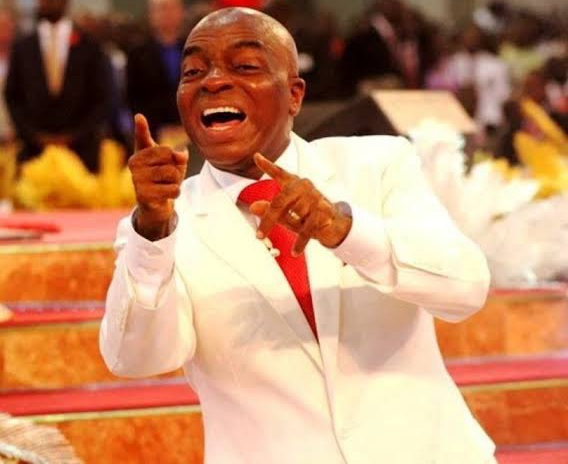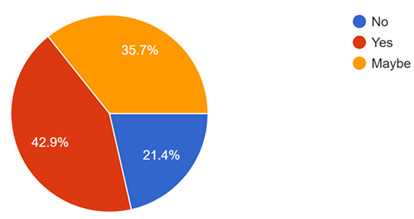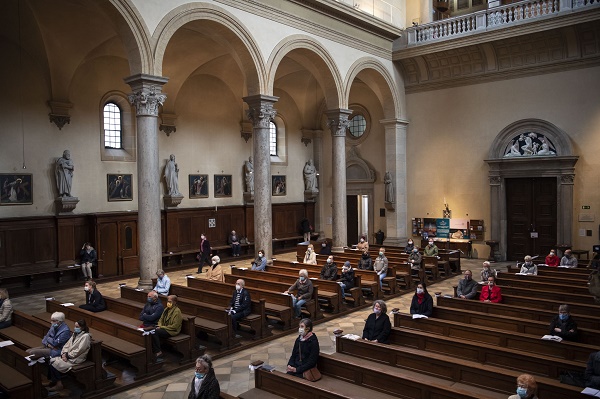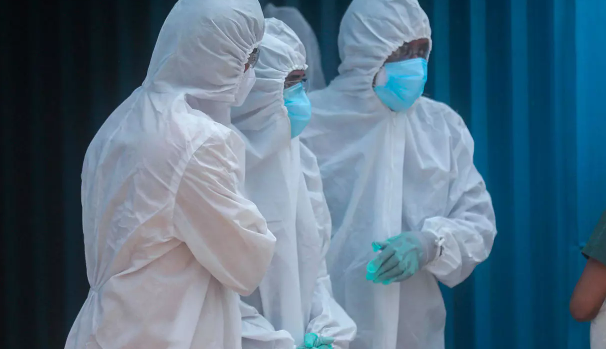Over 40 COVID-19 cases traced to Germany church service
At the outbreak of the COVID-19 pandemic, religious practices, especially Christianity and Islam, which are based on commonality were challenged leading to a significant change in the identity and life of religious faithful.
This is because as a way of reducing the spread of the virus, social distancing had to be adopted, leading to virtual and online meetings. This became the norm.
However, with Nigeria as one of the most religious nations in the world — according to Pew research — faith-based perspectives about the virus had a significant impact on how Nigerians viewed the COVID-19 pandemic. Another research showed that Nigerians were more likely going to listen to their religious leaders than the political class. This is due to their respect for religious authority aided by their lack of trust in the political class.
This is why most Nigerians turn to their religious authorities in times of frustration, trouble or helplessness to get “divine direction”. The COVID-19 pandemic was no different. Many Nigerians turned to religion and their spiritual leaders in search of solutions and words that would abate their fear of the virus.
Advertisement
Without hesitation, these spiritual leaders began lending their voices to the issues surrounding the virus. Many of them have held different views and opinions about the virus, ranging from it being an evil agenda, propaganda and a weapon against the church. On the other hand, some compel and advise their followers to take precautionary measures.
Claims peddled by religious leaders

For example, Chris Oyakhilome, a Nigerian pastor, propagates a conspiracy that the world’s governments are leveraging on COVID-19 to mastermind a ‘new world order’ through 5G technology. Due to his assertions, the United Kingdom sanctioned his television station for ‘inaccurate and potentially harmful’ Coronavirus claim
Advertisement
In a similar vein, a popular and well-respected Muslim cleric, Sani Yahaya also through his sermons declared COVID-19 a farce by the west to prevent Muslims from performing their religious obligations.

David Oyedepo, the general overseer of the Living Faith Church also known as Winners Chapel International, is one religious leader whose orientation about the COVID-19 pandemic has been at variance with medical projections and health guidelines.
During church activities, Oyedepo publicly declared his denial of the COVID-19 pandemic, its existence or effect on health. In a recent message, he also warned the members of his church against taking the COVID-19 vaccine, claiming it is “deadly” and untested.
Some other claims he has made include: “COVID-19 is just malaria, there is nothing in it and people are been deceived”, “someone got down from taking the vaccine”, amongst other claims.
Advertisement
In view of these claims, various stakeholders including fact-checkers, journalists, scientists, civil society groups as well as international organisations have been debunking claims put out by these clerics.
Medical experts and fact-checkers have said misinformation about COVID-19 is costly considering its effects on those who contract it and show common symptoms such as fever and dry cough or severe symptoms like persistent pain or pressure in the chest and high temperature (above 38 °C).
According to the World Health Organisation (WHO), about 15 percent of those who contract the virus become seriously ill and require oxygen and five percent become critically ill and need intensive care.

Advertisement
Notwithstanding the health challenges posed by the disease, there is a scanty, undetailed and not well-documented bigger picture of the impacts of these religious preaching of COVID-19 pandemic on not only the congregation but also on the larger society. This is why this fact-check research study focuses on religious leaders preaching and its influence on misinformation around vaccines and its administration in Nigeria.
Verifying the influence of these claims on Nigerians
Advertisement
Through the use of a questionnaire administered digitally on social media platforms using the Google forms tool, data was randomly collected from a total of 56 respondents from across Nigeria. As well, a key informant interview was conducted with a medical stakeholder.
Using content analysis of the interview and the data gathered through the survey instrument, the results were represented in pie charts and percentages were used to highlight the findings
Advertisement
Analysis of result gotten from the survey
Findings from the analysis on the role of religious leaders in the spread of misinformation around the COVID-19 pandemic in Nigeria revealed that 81.1 percent of the respondents found the rate of misinformation around COVID-19 disturbing. For 30.4 percent of the respondents, religious leaders’ approach to the pandemic, especially their comments and preaching were damaging.
Advertisement
Based on this, there was a consensus by 42.9 percent of those interviewed, that religious leaders through their preaching spread misinformation/fake news about COVID-19 and the ongoing vaccination process (Figure 1).

Further analysis on specific behavioural changes demonstrated by religious faithful as a result of the misinformed preaching showed that; notwithstanding the denial of some religious leaders on the existence and effects of COVID-19, 78.6 percent of the respondents do not believe COVID-19 was an act of God that requires divine intervention to tackle.
A total of 87.5 percent do no also think the measures that were put in place to curb the spread of the disease were targeted at Christians. Similarly, as shown in Figure 1, 89.3 percent also do not agree with the assertion that taking the COVID-19 vaccine is immoral, dangerous and anti-Christian.
This shows that religious followers see the need to embrace vaccination despite the misinformation occasioned by the religious leaders. These were the views of 55.4 percent of the respondents

The findings of the data collected for this study showed mixed feelings about religious preaching about COVID-19 and its resultant misinformation. This may be as a result of the limitation of the study which distributed questionnaire online and had more youthful respondents.
With this background, it is not mere coincidence that more young people could have had contacts with religious preaching most especially at a period when much of the religious activities went virtual. The result shows that people actually experienced information disorder about the pandemic due to religious preaching. This confirms a study that showed that although religious communities provide a dangerous vector for misinformation, they also present an opportunity to combat it.
Another major finding here also shows a large population of respondents who, though had contacts with religious misinformation, never yielded to such conspiracy theories about the virus.
These views are therefore in line with the position held by David John, a family medical consultant who in an interview with the researcher, said:
“COVID-19 is not malaria, it is not Covidmalaria but Coronavirus disease. We have seen patients who presented with symptoms of COVID-19. In the center where I practice there are reports of laboratory tests, and several people have been tested. Many people are even in management for COVID-19, so it would be foolhardy at this point to say that COVID-19 is a myth”
Similarly, this study has shown that the new reality about vaccine is in variance with the position held by religious leaders in Nigeria, such as Pastor David Oyedepo who was credited to have said:
“I have never seen a generation where you force people to take vaccines. It is inhuman; it is immoral sir. I’m not a lawyer but I don’t think it is legal. You can’t come to my house and want to give me an injection”.
The fact that most respondents were willing to receive COVID-19 vaccine despite the misinformation against it shows that the religious preaching had little negative influence on the behavioural attitude of the followers.
Conclusion:
The result from this study has shown that the perception of a large number of respondents on the virus and the recently developed vaccines was not negatively influenced by their religious leaders. It is clear that despite the volume of misinformation around COVID-19 lockdown enhanced by religious preaching about official directives around the vaccine, a smaller number of people were influenced. More Nigeria are likely receive the vaccine despite the position held by their religious leaders, which assures them of “divine healing and protection”.
This research was produced as part of the Africa Resilience Network (ARN) programme with support from the Institute for War and Peace Reporting (IWPR), in partnership with the Centre for Information Resilience (CIR), the International Centre for Investigative Reporting (ICIR) and Africa Uncensored.



